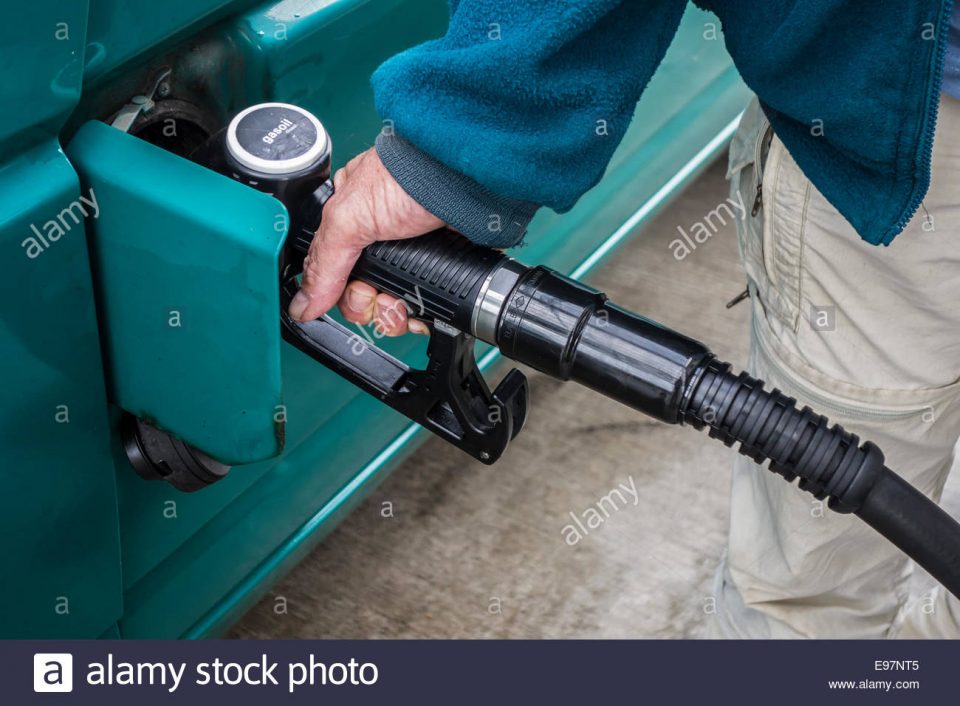By DAYO ADESULU
NIGERIA– The landing cost of Premium Motor Spirit (PMS), commonly known as petrol, has fallen to N981 per litre, according to recent data from the Major Energies Marketers Association of Nigeria (MEMAN). This marks a significant decrease from the previous cost of approximately N1,130 per litre as of September 25, 2024, primarily driven by a decline in global crude oil prices.
Global Crude Oil Prices Influence Petrol Costs
Recent fluctuations in crude oil prices have had a direct impact on the cost of refined petroleum products in Nigeria. Brent crude, the global benchmark, traded at $71.41 per barrel on Thursday, down from $73.46 the previous day. In August 2024, the average price was around $80.36 per barrel, but has since fluctuated between $70 and $75 per barrel due to lower oil demand in China and expectations of increased production from the Organisation of Petroleum Exporting Countries (OPEC).
Increase in Petrol Imports Amid Local Production
Despite the decrease in landing costs, petrol pump prices in Nigeria have seen an increase. Major oil marketers have begun importing petrol following recent deregulation in the downstream oil sector, with three major marketers confirming the arrival of vessels carrying approximately 141 million litres of PMS. This shift comes as the Dangote Petroleum Refinery ramps up local petrol production after decades of reliance on imports.
Regional Variations in Petrol Pricing
According to MEMAN, the average ex-depot price of petrol varies across Nigeria. In Lagos, it ranges between N865 and N1,200, while in Calabar, it is between N980 and N1,400, and in Port Harcourt, it falls between N1,200 and N1,400. Diesel prices have also seen changes, now averaging N1,089 per litre, with aviation fuel priced at N1,117.34.
Implications of Pricing Negotiations
The Nigerian National Petroleum Company (NNPC) has faced scrutiny over its pricing strategy, especially following the unveiling of locally-produced fuel by Dangote. The NNPC announced that it would sell petrol lifted from the Dangote refinery at prices exceeding N1,000 per litre in northern states, with varying prices across the country. Despite negotiations, pricing remains market-driven, as explained by NNPC’s Executive Vice President, Dapo Segun.
Future Outlook
With the impending commencement of naira crude sales on October 1, 2024, there is optimism among Nigerians that petrol prices may stabilize further. As the market continues to evolve, consumers are hopeful for a reduction in petrol costs, benefiting from both local production and imported supplies.
Overview of Nigeria’s Oil Sector
Nigeria is one of Africa’s largest oil producers and has a significant role in the global oil market. The country’s economy is heavily reliant on oil exports, which account for a large portion of government revenue and foreign exchange earnings. However, Nigeria has faced numerous challenges, including fluctuating global oil prices, inadequate refinery capacity, and currency instability.
Recent Developments in Petrol Pricing
1. **Landing Cost Reduction**: The recent drop in the landing cost of petrol to N981 per litre is a significant development, especially as it was previously over N1,130. This reduction is attributed to a decrease in global crude oil prices, which have fluctuated due to various factors, including demand changes and OPEC production decisions.
2. **Impact of Global Oil Prices**: The Brent crude oil price has been volatile, affecting local petrol prices directly. When global oil prices decrease, it typically leads to lower landing costs for imported fuel. Conversely, increases in prices can trigger higher consumer prices domestically.
3. **Deregulation and Imports**: The Nigerian government has recently deregulated the downstream oil sector, allowing private marketers to import petrol. This move aims to foster competition and stabilize supply. Major oil marketers have begun importing petrol, which is essential for meeting local demand, especially as local refineries ramp up production.
4. **Local Refinery Operations**: The Dangote Petroleum Refinery, one of the largest in Africa, has recently started producing petrol. This is a pivotal change for Nigeria, which has long relied on imported fuel. The refinery is expected to enhance local production capacity, reduce dependence on imports, and potentially lower prices.
Challenges Facing the Oil Sector
1. **Currency Fluctuations**: The Nigerian naira has faced depreciation against major currencies, impacting the cost of imported goods, including fuel. The exchange rate plays a crucial role in determining the landing costs of petrol and other petroleum products.
2. **Infrastructure Issues**: Despite having significant oil reserves, Nigeria’s refining capacity has been historically underutilized due to infrastructural challenges and maintenance issues. Investments in refining capacity and infrastructure are essential for boosting local production.
3. **Economic Diversification**: The heavy reliance on oil has made Nigeria vulnerable to price shocks in the global oil market. As a result, there are ongoing discussions about diversifying the economy to reduce dependence on oil and enhance resilience against market fluctuations.
4. **Regulatory Environment**: The shift towards deregulation is part of a broader strategy to improve efficiency in the oil sector. However, the transition comes with challenges, including ensuring that consumers benefit from competition and that prices remain stable.
Future Prospects
Looking ahead, the combination of local refinery production, increased imports, and ongoing regulatory changes could lead to a more stable petrol market in Nigeria. If the Dangote refinery operates at full capacity and other private refineries follow suit, there may be a significant reduction in import dependency.
Moreover, effective management of the oil sector, along with strategic investments in infrastructure and technology, could enhance productivity and efficiency. This would not only stabilize petrol prices but also contribute to overall economic growth.
In summary, while there are positive developments in the Nigerian oil sector, challenges remain. The government’s approach to deregulation, support for local production, and management of external factors will be crucial in shaping the future of petrol pricing and energy security in Nigeria. If you have more specific aspects you want to explore or questions about, feel free to ask!


